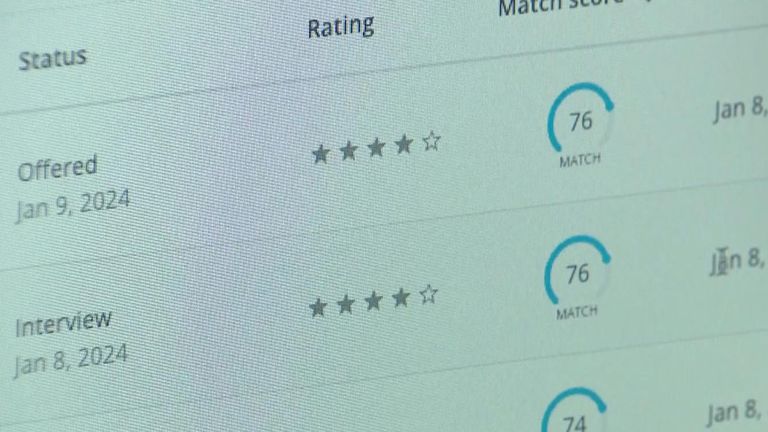Google has admitted its greenhouse gas emissions have risen 48% over the past five years - largely because of artificial intelligence - scuppering its climate aims.
AI systems require intense levels of computational power, and this has piled pressure on the tech giant's data centres around the world.
In its latest environmental report, Google went on to warn that reducing these emissions "may be challenging" - especially as it builds new infrastructure.
Please use Chrome browser for a more accessible video player
At the start of this year, the company announced it was investing £788m in the UK to establish a brand-new data centre in direct response to growing demand for AI.
But all of this comes as Google's self-set target of achieving net zero emissions by the end of the decade looms closer.
There have been growing concerns about the impact AI could have on climate change as adoption continues to grow.
A recent study by the International Energy Agency predicted that the amount of electricity used by data centres could double between 2022 and 2026.
Although Google's figures reveal most of its data centres in Europe and the Americas receive most of their energy from carbon-free sources, this isn't always the case.
That's because sites in the Middle East, Asia and Australia use a much lower proportion of energy from cleaner sources.
Please use Chrome browser for a more accessible video player
Google claims it is "actively working through" the "significant challenges" it faces - and some initiatives rolled out to lower emissions may not be beneficial immediately.
The report added: "While we advanced clean energy on many of the grids where we operate, there are still some hard-to-decarbonise regions like Asia-Pacific where CFE (carbon-free energy) isn't readily available.
"In addition, we often see longer lead times between initial investments and construction of clean energy projects and the resulting GHG reductions from them."
Read more about AI:
Apple to integrate AI into new phones
Scarlett Johansson on OpenAI clash
Please use Chrome browser for a more accessible video player
Google went on to argue that AI could ultimately help the world reach key climate targets and even improve weather forecasts - a sentiment shared by Microsoft co-founder Bill Gates.
But Lisa Sachs from the Columbia Center on Sustainable Investment, says Google must do more to collaborate with cleaner firms and invest in the electrical grid.
"The reality is that we are far behind what we could already be doing now with the technology that we have, with the resources that we have, in terms of advancing the transition," she said.

Follow Sky News on WhatsApp
Keep up with all the latest news from the UK and around the world by following Sky News
And while Ms Sachs praised Google for its honesty, she warned rigorous conversations were needed so "it doesn't get much worse before it starts getting better".
Amanda Smith - senior scientist at the climate non-profit Project Drawdown - added that AI should be used responsibly, and only when resulting energy consumption benefits society.

 5 months ago
55
5 months ago
55


























 English (US)
English (US)